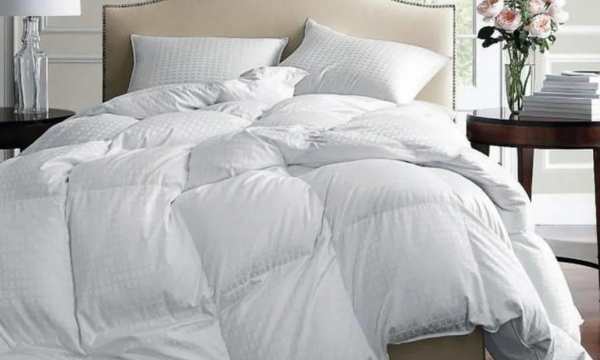When the cold winter wind blows, there is nothing more comforting than a clean, warm blanket by your side.
Not only are blankets soft and cozy, but they can also make your home warmer in the winter. But blankets can become dirty, dusty, and smelly after too much use. It is important to take good care of your blankets so that they survive the winter. This article will discuss all the different ways you can clean your blanket to keep it soft, fresh, and durable.
1. Understanding Blanket Materials:
Before you start cleaning your blanket, it is important to know what the blanket is made of. Different substances require different care. Fabrics commonly used to make blankets include cotton, fleece, fleece, and synthetic blends. Make sure you read the care label to understand exactly what the manufacturer says it should do.
2. Precautions:
One way to take precautions when caring for blankets is to prevent the blanket from becoming too dirty or stained. Tell family and friends to use blankets only after washing hands and not to eat wrapped in blankets. Also, use decorative or quilted blankets instead of regular blankets to prevent body oils and dirt from coming into direct contact with them.
3. Regular Shaking and Beating:
Taking your blanket outside and shaking it well is a simple and effective way to remove loose dirt and dust. You can also hang them on a shelf and tap them gently to remove dust and dirt. This method works especially well with wool blankets because the fibers tend to attract dust.
4. Spot Cleaning:
Spot cleaning is a method that focuses on removing stains in one area. You can use light soap or a solution of water and white vinegar. Apply the solution to the stain with a soft cloth or sponge and rub in slow, circular motions. Be careful not to scrub too hard as this can damage the delicate fabric. Rinse the area and let it dry on its own.
5. Machine Washable:
Most blankets can be machine washed, but follow care instructions carefully. If you want to wash wool or cashmere, use a gentle machine wash with mild soap and cold water. Usually, normal washing in warm water is safe for cotton or synthetic blends. Always keep colors separated to prevent bleeds, and don’t put too much into the machine to ensure it cleans properly.
6. Hand Wash:
If the blanket has an intricate pattern or is made of delicate materials, you may need to hand wash it. Put some mild dishwashing liquid in a container and fill it with warm water. Gently stir the water to create a foam, then submerge the blanket and let it soak for 15-20 minutes. Gently wipe the cloth to remove dirt and then rinse it clean.
7. How to Dry:
Proper drying is just as important as cleaning. The gentlest way to dry most blankets is to let them air dry. Lay them flat on a clean, dry surface and turn them frequently so they dry evenly. Do not hang heavy blankets as they may lose their shape. Use a low-temperature setting for machine-dryable blankets to prevent them from shrinking or becoming damaged.
8. Fiber Softeners and Dryer Sheets:
These can make your blanket smell better and feel softer, but they may contain chemicals that are harmful to sensitive skin or leave a film. If you must use them, choose natural or for sensitive skin. You can also use a natural fabric softener by adding a cup of white vinegar to the rinse cycle.
9. Dealing with Odors:
Blankets can develop a musty odor, especially if they have been stored for a long time. Hang them outside in the sun to make them smell better. The natural antibacterial properties of sunlight can help remove odors. You can also remove smelly blankets by placing them in the dryer with dryer balls or baking soda bags.
10. Storage Tips:
Storing your blanket correctly is an important part of keeping your blanket in good condition. Make sure they are completely dry before folding them and placing them in a cool, dry place. Use storage bags or containers that allow air circulation to prevent moisture, and consider adding cedar-scented bags to keep insects out.
11. Professional Cleaning:
If you have an antique or very delicate carpet, you may want to have it professionally cleaned. Only professionals know how to clean and protect expensive fabrics without damaging them. To get the best care, always tell someone about any special concerns or instructions.
12. Emergency Tip:
Accidents happen and you need to act quickly to prevent stains from hardening. Immediately wipe the spill with a clean, absorbent cloth, working from the outside of the stain inward. Do not rub as this will cause the color to spread. If you spill anything on a dry-clean-only blanket, take it to the dry cleaners immediately.
Conclusion
Taking the time to properly care for your blankets will not only keep you warm and comfortable in the winter, but they will also last longer. These blanket cleaning tips can help keep your home clean and cozy during the warmer months. These include regular shaking, spot cleaning, and using proper washing and drying methods.
FAQs
1. How often should I wash my blanket?
The frequency of cleaning depends on how often you use it. If you use your blanket every day, you should wash it once a month. Blankets that are not used regularly should be thoroughly cleaned at least once a season.
2. Can various blankets be washed with ordinary detergent?
It is important to read the care label on the blanket for specific instructions. Regular soap can be used to clean many blankets, but mild or special detergents may be necessary to keep wool or cashmere in good condition.
3. Are all blankets machine washable?
Some blankets cannot be washed in the washing machine. Be sure to follow the maintenance instructions provided with the product. It may be necessary to clean delicate or specialty blankets by hand or with the help of a professional cleaner to prevent damage.
4. What should I do if there are stains on my blanket that will not come off?
Use a mixture of water and white vinegar to remove stains that won’t come off. Use a soft cloth or sponge to slowly rub away the color. Do not scrub too hard or you will damage the fabric. If the stain does not go away, you may need to hire a professional cleaner.
5. What about dryer sheets and fabric softener? Can I use them on all blankets?
Fabric softener and dryer sheets can make your blanket softer and smell better, but be careful with certain materials. Some people may be allergic to the chemicals in these items. Consider natural options and always make sure they match the fabric of the blanket.
6. How do I remove the odor from the blanket?
Hanging your blanket outside in the sun is a natural way to eliminate odors. You can also put them in the dryer with some dryer balls or a can of baking soda. Storing items in a cool, dry place will also prevent them from smelling musty.
 6 Easy Wool Blankets Cleaning Tips for Cozy Comfort
6 Easy Wool Blankets Cleaning Tips for Cozy Comfort
 Revitalize Your Summer: Blanket Cleaning Guide
Revitalize Your Summer: Blanket Cleaning Guide
 Quick Fixes: Removing Blood Stains from Blankets
Quick Fixes: Removing Blood Stains from Blankets